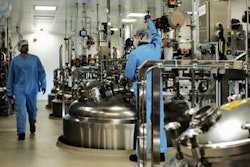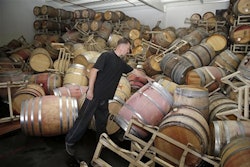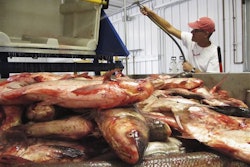California Gov. Jerry Brown on Tuesday signed the nation's first statewide ban on single-use plastic shopping bags, following the lead of more than 100 California cities and counties. The fight between environmentalists and manufacturers is not over, as plastic bag makers vow to take their opposition to the ballot box.
Here are some key things to know about the landmark legislation:
WHAT DOES THE LAW DO?
SB270 targets plastic bags provided at check-out counters at grocery stores, pharmacies, convenience stores, and liquor shops. It does not apply to non-food retailers such as clothing and electronics shops, nor does it apply to the plastic bags provided at grocery stores for produce and meat. It will take effect at larger stores July 2015 and expand to smaller businesses in 2016.
WHAT IS THE PROBLEM WITH PLASTIC BAGS?
Environmental groups and local governments say plastic bags have been a vexing source of pollution. Because they don't easily decompose, they end up littering parks, rivers, beaches and oceans. Plastic debris can accumulate in the ocean and ends up in the bellies of fish and other marine life. Cities and counties estimate they spend millions of dollars to clean up the waste, according to an analysis of the bill.
WHAT ABOUT RECYCLING PLASTIC BAGS?
Some opponents of the legislation favor an approach that encourages recycling plastic bags instead of banning them. California set up such a program in 2006, but The Associated Press found the state wasn't tracking how many bags were recycled. The state's last review of the data, in 2009, found a recycling rate of only 3 percent, and officials doubt it has improved much since then.
WHAT ABOUT PAPER?
The legislation allows stores to charge consumers at least 10 cents each for paper bags, which many businesses now provide for free. Opponents of the legislation have blasted the provision as a cash-grab by grocers who supported the plastic bag ban. The bill's author Sen. Alex Padilla says existing bans show that consumers quickly adapt and that the paper bag fees will not be very lucrative for grocers. SB270 also limits how grocers can spend the proceeds and requires stores to provide free bags to people who are on public assistance.
WHAT HAPPENS NEXT?
The American Progressive Bag Alliance, a coalition of plastic bag manufacturers, says it will seek a voter referendum to overturn the law. The group has three months to gather more than 500,000 valid signatures, the number needed to place a referendum on the November 2016 ballot. The group says it will push to make sure the law does not take effect until voters have a say.
Read more about the plastic bag ban: "CA Governor Expected To OK Plastic Bag Ban"






















